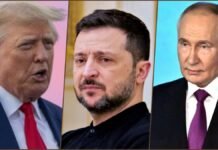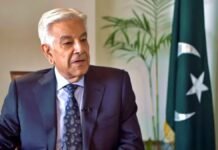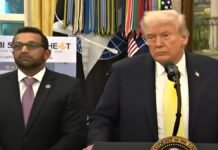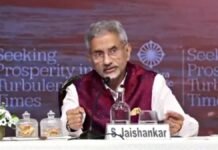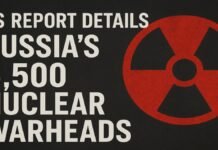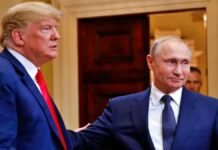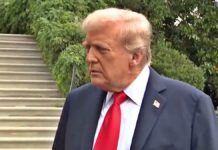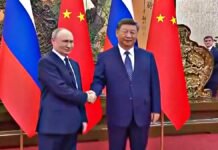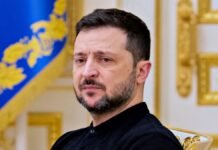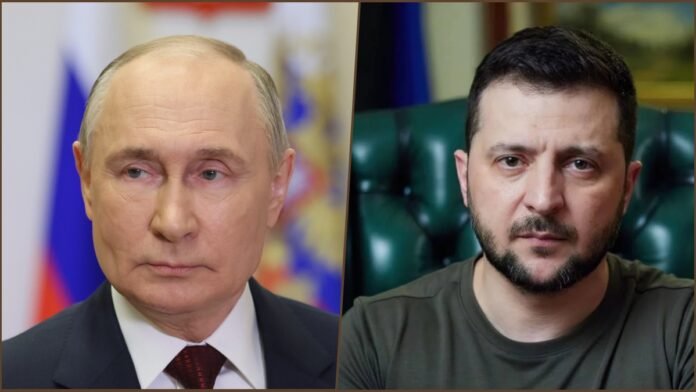
Key Points
- Russia’s Kremlin spokesperson Dmitry Peskov announced President Putin’s readiness for new peace talks with Ukraine.
- Putin insists Russia will pursue peace but remains firm on achieving its primary war objectives.
- Talks could resume next week, responding to Ukrainian President Zelensky’s call for accelerated negotiations.
- Kremlin dismisses US President Trump’s recent threats and pressure; insists American involvement is not a factor in its decision.
- US had threatened 100% tariffs on Russia if no ceasefire within 50 days, but Russia downplayed Washington’s influence.
Moscow/Kyiv: In a major diplomatic development amid the ongoing Russia-Ukraine war, the Kremlin announced on Sunday that President Vladimir Putin is prepared to reengage in peace negotiations with Ukraine. The announcement comes at a crucial juncture, as Ukrainian and Western leaders urge an accelerated path to a ceasefire and a sustainable resolution.
Kremlin: “Putin Ready for Peace, But Russia’s Goals Are Unchanged”
Kremlin spokesperson Dmitry Peskov confirmed in a widely watched statement:
“President Putin has repeatedly underlined his willingness to find a peaceful solution with Ukraine. However, our core objectives remain non-negotiable, and achieving them continues to be our top priority. We acknowledge that peace talks will be a lengthy and demanding process.”
Though details of Russia’s “main goals” were not elaborated upon, the Kremlin has frequently cited security guarantees for Russian-speaking regions, demilitarization of certain Ukrainian territories, and recognition of the current territorial status quo as key demands in past negotiations.
Zelensky Confirms Next Round of Peace Talks Proposed
The push for renewed negotiations comes after a standstill since early June, when previous talks stalled over conflicting demands and ongoing fighting in the Donbas and southern Ukraine.
Ukrainian President Volodymyr Zelensky recently stated that Security Council Secretary Umarov had signaled a new round of direct talks could happen as early as next week. Zelensky emphasized the urgency of accelerating peace diplomacy to prevent further escalation and loss of life.
Kremlin Rejects American Pressure, Downplays “Trump Threat”
The announcement also follows comments from US President Donald Trump, who last week warned that Russia had “50 days to agree to a ceasefire” or face “100% tariffs” from the United States. The Kremlin, however, dismissed the threat as “rhetorical noise,” with Peskov noting,
“America is not involved in our decision-making regarding peace talks. President Trump’s remarks are nothing new. The world is used to his sharp, sometimes meaningless statements.”
Peskov nonetheless acknowledged that the US maintains a significant stake in the outcome of the war but insisted that Russia’s peace offer is independent of Washington’s pressure.
What’s Next: Timeline and Expectations
- Next round of talks is expected to be proposed and possibly scheduled for the coming week.
- The international community, including the UN and major European powers, has welcomed any sign of renewed diplomacy, but remain cautious about the chances for real breakthrough.
- Analysts warn that substantial gaps remain between Moscow’s and Kyiv’s demands, and any peace process will likely proceed slowly amid continued conflict on the ground.
Background
- The Russia-Ukraine conflict, now in its third year, has caused significant loss of life, economic disruption, and global geopolitical ripple effects.
- Previous peace efforts collapsed over issues of territorial control, Ukraine’s sovereignty, Russia’s security concerns, and Western sanctions.
After a period of diplomatic stagnation and mounting international pressure for de-escalation, President Putin’s renewed willingness to discuss peace offers a glimmer of hope though Kremlin officials insist Russia will not compromise on its core aims. With new negotiations on the horizon, all eyes now turn to Kyiv and Moscow for concrete moves towards ending Europe’s most severe conflict in decades.






